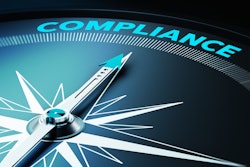
Many companies are taking too narrow of a scope when it comes to digitalizing their supply chain operations. That’s one of the key takeaways from a recent survey of more than 300 supply chain executives and leaders, which found that despite significant investments in supply chain technology in recent years, these digital transformation initiatives are primarily focused on short-term challenges and priorities, mostly centered on cost reduction.
While cost savings are core objective for any supply chain operation and digital efficiencies are a reliable way to create them, companies that take a too-limited view of digitalization are missing opportunities to fortify their operations long-term by integrating sustainability as a cornerstone of their operations. By not factoring sustainability and ESG (Environmental, Social and Governance) considerations alongside cost reduction, these organizations are overlooking the prime opportunity to enhance transparency and traceability practices that have emerged as critical pillars for upholding business integrity and meeting consumer expectations. Failing to consider sustainability early can also introduce inefficiencies that can negate direct cost savings.
The importance of incorporating ESG factors into supply chain operations cannot be overstated, especially in today's environmentally conscious and socially aware market. Younger consumers in particular have proven decisive in their preference for sustainability. 73% of millennials now say they would spend more for sustainable products, and three quarters of Gen Z consumers cite sustainability as more important to them than brand name. Investors, too, increasingly value companies that prioritize social and environmental stewardship.
Consumer demand alone presents a compelling case for businesses to expand their digitalization efforts to enforce stricter standards of sustainability, but there’s an even more urgent consideration: the tsunami of new global supply chain regulations that are rapidly passing across the world. From the European Union's new Corporate Sustainability Reporting Directive to the United States’ Uyghur Forced Labor Prevention Act and the German Supply Chain Act, these laws demand meticulous scrutiny of supply chains to ensure social and environmental responsibility.
Complying with this ever-growing web of laws is a challenge that grows more difficult by the month, as new laws continue to go into effect. While many of these laws broadly overlap, each has its own subtleties and reporting requirements. For instance, New York’s proposed Fashion Sustainability and Social Accountability Act shares a similar purview as California’s Transparency in Supply Chains Act, but it includes greater requirements around environmental sustainability, such as carbon emissions and resource usage, which go beyond the anti-slavery and anti-trafficking focus of California’s law. For large retailers that conduct business across the globe, navigating this fragmented regulatory landscape has already become nearly impossible without robust digital solutions that incorporate best practices for sustainability.
Managing the complexity created by these laws becomes infinitely simpler with a multi-enterprise platform, which can introduce visibility into a company’s entire supply chain, from their immediate Tier 1 and 2 suppliers down to the material-level suppliers at the Nth tier. Right now, these capabilities are beyond most retail businesses, which are unable to even identify their lower tier suppliers, let alone document the intricate mosaic of farmers, mills, factories, warehouses, and shipping facilities involved in creating their products. The right multi-enterprise platform can illustrate the relationships between vendors and factories, and even visualize key performance and scorecard metrics such as audit results, certifications and risk levels, so compliance managers can see at a glance any vulnerabilities in their supplier base.
This technology simplifies compliance reporting while enabling supply chain departments to manage by exception, thanks to the strategic application of AI to sift through vast datasets and highlight potential ethical or environmental concerns, allowing brands to sidestep high-risk suppliers and manage by exception using automated notifications. AI-driven analysis can pinpoint anomalies and draw connections to areas of risk, providing an early warning system to protect brand reputation and ensure ethical operations.
A broad view of digitalization is crucial for future-proofing supply chain operations. A multi-enterprise platform can extend efficiencies across all supply chain departments from product development to sourcing, supplier management, and logistics, while eliminating redundancies and allowing brands and retailers to connect dots and draw intelligent insights from the ever-growing mountains of data they collect, create, and manage.
The retail sector should be commended for the strides it has made in supply chain digitalization since the pandemic. Companies that have started investing in digital transformation have made important first steps toward a more efficient supply chains, but to reap the full benefits of digitalization, companies must embrace a holistic strategy encompassing both cost improvement and sustainability. Through the integration of a multi-enterprise platform, businesses can manage their supply chains more effectively while demonstrating their commitment to ethical practices and environmental stewardship, setting a new standard for supply chain management that meets the sustainability expectations of tomorrow’s consumers.



















